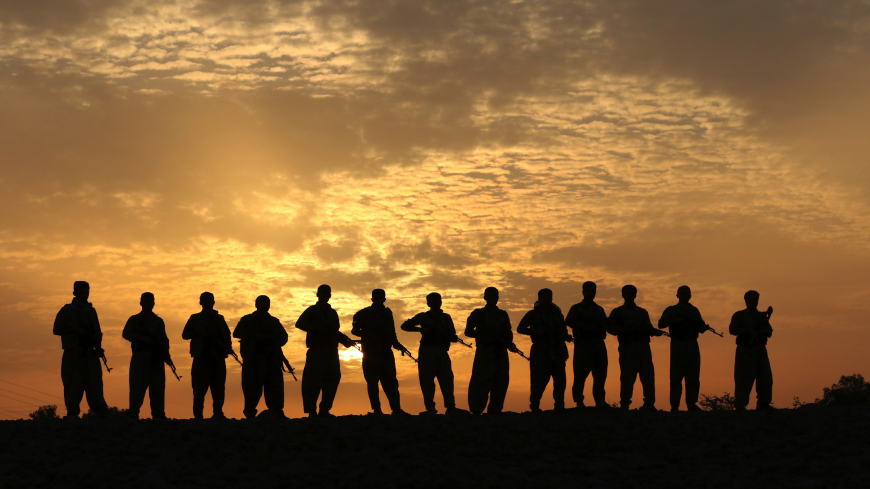Two members of the Islamic Revolution Guards Corps (IRGC) and two Kurdish rebels have been killed in a skirmish in the Iranian western province of Kurdistan, on the border with Iraq.
The statement issued by the IRGC’s Hamzeh Seyyed ol-Shohada Base reads that “a number of counterrevolutionary thugs were wounded and the remaining members fled due to the border conditions in the area” in the clash in Marivan County, on the night of April 21-22. The statement further warns counterrevolutionary groups stressing that “they should expect consequences for their crimes against the locals in the region.”
Marivan, located on the border with Iraq, periodically witnesses clashes between Iranian forces and Iraq-based armed Kurdish opposition groups. Iran mainly accuses the Party of Free Life of Kurdistan (PJAK), an Iranian branch of the PKK terrorist organization, of carrying out acts of sabotage and attacking frontiers.
On April 18, Iran’s Intelligence Ministry seized a batch of combat ammunition near the Shalheh Hajj Hossein village in the Iranian south-western province of Khuzestan, on the border with Iraq. The list of seized weapons includes Kalashnikov rifles and 7,000 Colt cartridges, according to Brigadier General Ahmad Khadem Seyed al-Shohada, who leads IRGC’s regional headquarters in Southwestern Iran (also known as “Karbala” headquarters).
Some Kurdish groups from Iran base themselves in remote areas of Iraqi Kurdistan near the Iran border, and Iran frequently strikes their positions. The Democratic Party of Iranian Kurdistan and other Kurdish groups fight for Kurdish autonomy within Iran.
Last week, the secretary of Iran’s Supreme National Security Council (SNSC), Ali Shamkhani stressed the need to deepen cooperation with Iraq in order to put an end to the activities of “counterrevolutionary and terrorist forces” in the region, mentioning northern Iraq as an area of concern.
The statement was made as part of the meeting with the national security adviser of Iraq, Qasim al-Araji, on April 12.
Shamkhani further said that it was necessary to combat organized crime, including weapons and drug-smuggling networks, which threatened the security of both countries.
In his turn, the Iraqi national security adviser said that Baghdad had coordinated with officials in Iraqi Kurdistan to better implement counter-terrorism measures decided upon by the Iraqi government. Al-Araji reportedly claimed that some of the “terrorist groups in northern Iraq” were “supported by America” and that “dividing terrorist groups into good and bad and applying double standards in the fight against terrorism will only strengthen the criminal role of terrorist movements.”







 Iran's senior military leaders described the drone and missile attack on Israel on April 14 night as “successful".
Iran's senior military leaders described the drone and missile attack on Israel on April 14 night as “successful".
 The number of evacuees from flooded areas in Kazakhstan has reached 97,852 people, including about 32,856 children since March 27.
The number of evacuees from flooded areas in Kazakhstan has reached 97,852 people, including about 32,856 children since March 27.
 Azerbaijan officially unveiled the logo for the upcoming 29th session of the Conference of the Parties to the United Nations Framework Convention o...
Azerbaijan officially unveiled the logo for the upcoming 29th session of the Conference of the Parties to the United Nations Framework Convention o...



